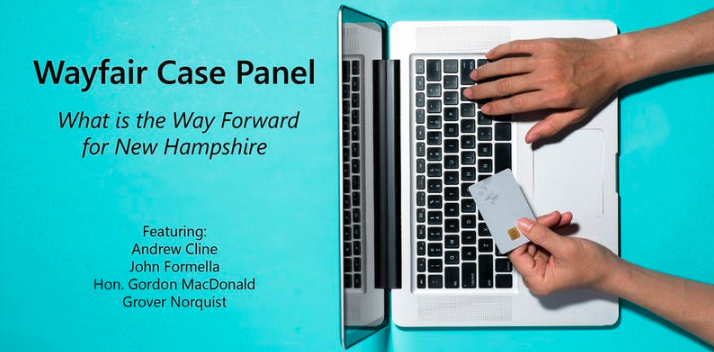When New Hampshire leaders gather on Wednesday to discuss strategies to deal with the Supreme Court’s Wayfair ruling, Bill O’Brien will be the moderator—but he will not be moderate.
O’Brien, the former speaker of the New Hampshire House, has been railing against both the decision—which extends a state’s ability to impose its sales taxes beyond its borders—and the lack of an aggressive response from New Hampshire politicians.
“We should be taking an ‘all of the above’ approach to keeping other states from forcing New Hampshire businesses to collecting their sales taxes,” O’Brien told NHJournal. “And we shouldn’t be leaving our strongest arguments off the table.”

O’Brien was referring to the debate over his proposal that the Granite State should “firmly establish a policy that this is a state that does not allow the collection of sales taxes, and then invoke the ‘full faith and credit’ clause of the Constitution if other states attempted to force state businesses to violate New Hampshire law.
“There are a long line of [Supreme Court] rulings I believe would sustain this position, and there’s no reason for us the waive our best argument before the fight even begins.”
The full faith and credit argument will be part of the discussion on Wednesday morning, 10 a.m. at the Grappone Conference Center in Concord. Speakers include Grover Norquist of Americans for Tax Reform; New Hampshire Attorney General Gordon MacDonald; John Formella, legal counsel to Gov. Chris Sununu; and Andrew Cline, president of the Josiah Bartlett Center for Public Policy.
Drew Cline made his position clear: “New Hampshire has two choices. We can pass laws to protect Granite Staters from out-of-state tax collectors, or we can sit by and watch the state’s hard-won tax advantage be eaten away by high-tax states that have long wanted to destroy it,” he told NHJournal.
It is also key, O’Brien believes, that Grover Norquist will be part of the conversation. “When the legislature failed to act [on the Wayfair decision] over the summer, Washington was watching,” O’Brien said. “If we take a strong position, if we show that New Hampshire is going to fight a sales tax all the way, that will get Congress’s attention. It will put pressure on them to act.”
O’Brien also agrees with Norquist’s argument that the premise of the Wayfair decision opens the door far wider than just an online sales tax.
“Unfortunately, in its recent Wayfair decision, the Supreme Court said ‘yes—you can be taxed by politicians you do not elect and who act knowing you are powerless to object.’ This power can now be used to export sales taxes, personal and corporate income taxes, threatens retroactive taxes, and opens the door for the European Union to export its tax burden onto American businesses,” Norquist testified before Congress in July.
Gov. Sununu supported the legislative proposal that passed the state senate over the summer but was killed when a group Republican lawmakers joined with the overwhelming majority of Democrats to oppose it. Democrats like Senators Jeanne Shaheen and Maggie Hassan, along with gubernatorial candidate Molly Kelly, oppose the Wayfair decision but have not proposed a legal or legislative strategy to protect New Hampshire businesses from its effects.
Instead, Kelly has limited her public statements on the matter to criticizing Gov. Sununu for failing to attend the special session that debated the failed proposal.
“If I had called a special session to pass emergency legislation to support small businesses, I would have been working day and night to get the bill passed. I would have been in Concord, and not raising money at a partisan event two time zones away,” Kelly said in a statement.
But what strategy would a Governor Kelly pursue? Does she agree with those who believe the state should concede that the Supreme Court has made an online sales tax in New Hampshire inevitable and propose ways to make it less burdensome? Or would she follow the O’Brien “All of the above” strategy?
The Kelly campaign declined to comment.

